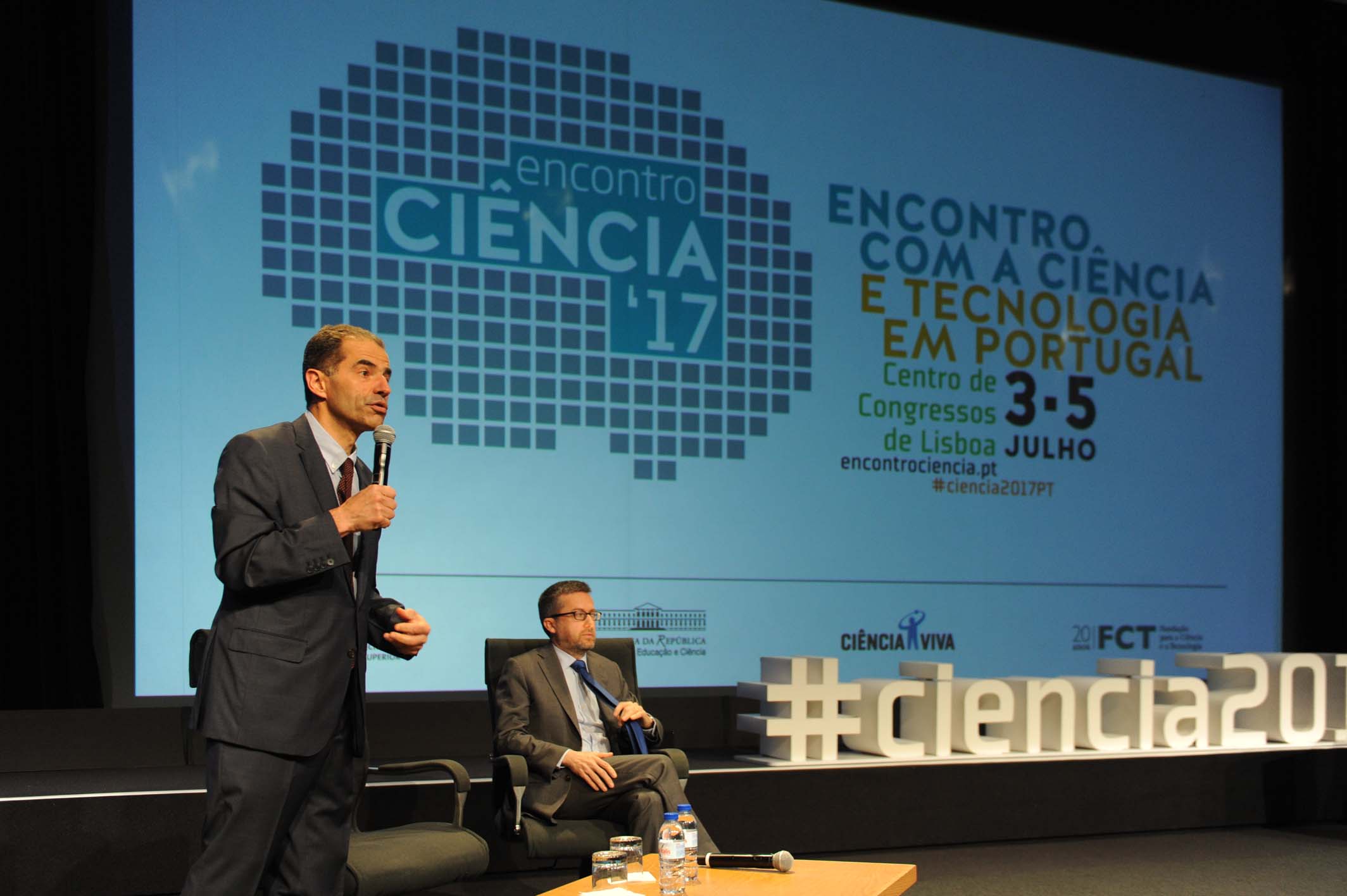Science, Europe, and the Mediterranean at the 2017 Science Meeting

The last day of the 2017 Science Meeting, July 5, opened with a plenary session on the theme "Science, Europe, and the Mediterranean."
The session featured speeches by Carlos Moedas, European Commissioner for Research, Science, and Innovation; Manuel Heitor, Minister of Science, Technology, and Higher Education; Alexandre Quintanilha, Chair of the Parliamentary Committee on Education and Science; and members of parliament from the five parties represented on this committee.
In his speech, Minister Manuel Heitor referred to four critical messages for the future, which were intended as premises for this Meeting: 1. Align – to respond to the missions and challenges of the National Science and Technology Plan; 2. Open – to a science that is open to the community, which dignifies knowledge as a public good; 3. Strengthen – the scientific community in terms of scientific employment, units, and Associate Laboratories; 4. Diversify – the scientific community and the scientific system.

Commissioner Carlos Moedas, in turn, presented some of the conclusions of the LAB-FAB-APP report, prepared by the independent high-level group appointed by the commissioner and coordinated by Pascal Lamy, which was released in Brussels on Monday (July 3). LAB-FAB-APP outlines a vision and a set of strategic recommendations aimed at enhancing the impact of European Union research and innovation in the future, based on a critical analysis of the evaluation of the results of the Horizon 2020 program for the construction of a post-2020 program. In his speech, the Commissioner highlighted three recommendations contained in this report: 1. looking at the whole rather than the parts; 2. focusing on the scientist, who is the decision-maker and innovator; and 3. missions, which connect science to citizens and align all elements of the chain.
In the speeches given by members of the Parliamentary Committee on Education and Science, the common denominator was the concern expressed by all regarding the production of legislation in parliament on a wide range of issues, which they believe should be increasingly based on studies produced by the scientific community.
After these presentations, the session continued with a technical panel, featuring Vladimiro Miranda, from INESC-TEC at the University of Porto, with the presentationTrans-Mediterranean cooperation and Portuguese affirmation with an emphasis on Morocco, and Mário Carvalho, from ICAAM at the University of Évora, with the presentationAgronomic strategies for increasing irrigation water productivity in the Mediterranean environment.
The closing remarks of the session were given by Nart Dohjoka, from the Science Diplomacy Program of the Royal Scientific Society of Jordan, and Minister Manuel Heitor, who closed the session.
Published on July 5, 2017